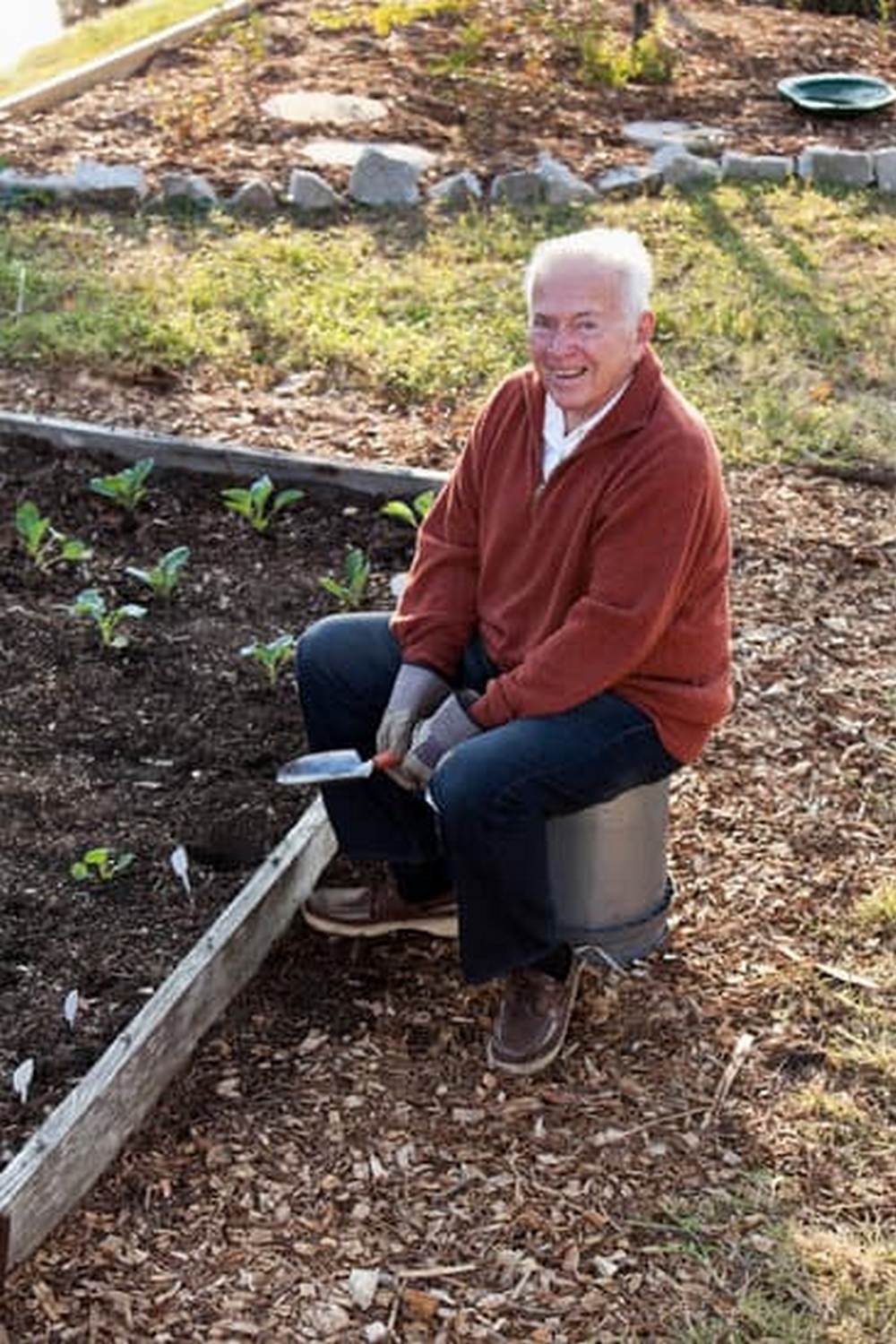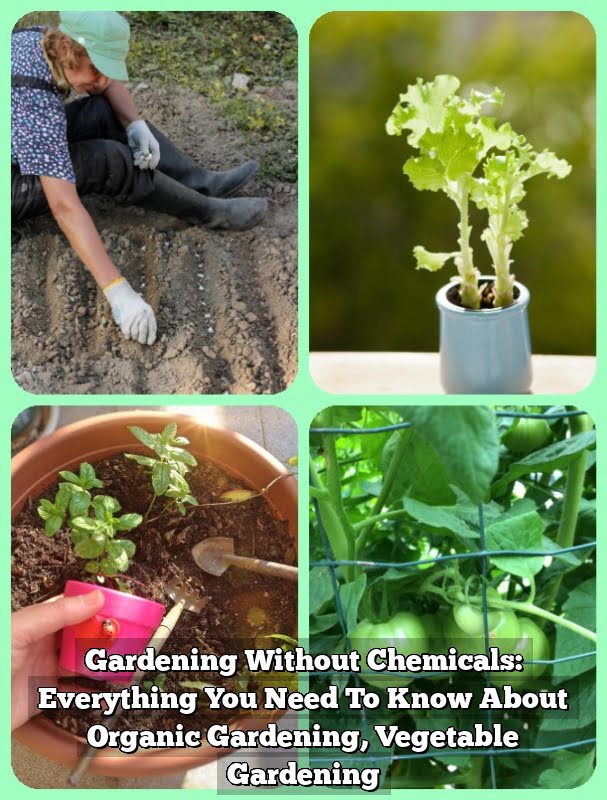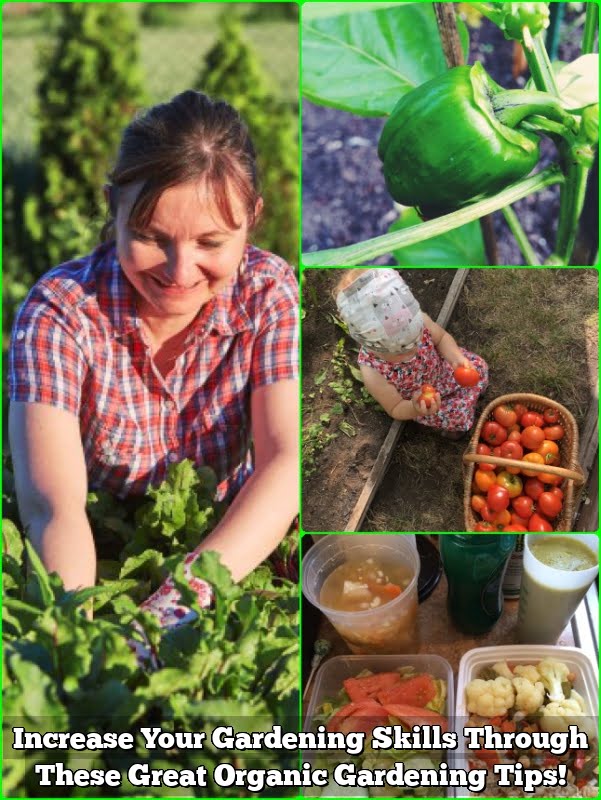Are you looking to start a vegetable garden in the UK without the hassle of digging? No dig vegetable gardening is becoming increasingly popular in the UK, offering a low-maintenance and sustainable approach to growing your own produce. This article will guide you through the concept of no dig vegetable gardening, its rising popularity in the UK, and the numerous benefits it offers.
Whether you’re an experienced gardener or just starting out, no dig gardening may be the perfect solution for your garden. Learn more about how to get started with this method and what tools and materials you’ll need.
No dig vegetable gardening involves growing vegetables without disturbing the soil through traditional digging methods. Instead, this approach focuses on building and maintaining healthy soil by layering organic materials on top. In recent years, it has gained traction in the UK due to its ability to improve soil health, reduce labor, and produce higher yields. As more gardeners seek sustainable and eco-friendly practices, no dig gardening has emerged as an attractive option for cultivating fruits and vegetables.
The benefits of no dig vegetable gardening are plentiful. Not only does it promote healthy soil structure and beneficial microorganisms, but it also minimizes weed growth and conserves water. By avoiding excessive tilling, the natural ecosystem of the soil remains undisturbed, leading to improved plant health and overall productivity. Whether you have limited space or simply want to simplify your gardening routine, no dig vegetable gardening can be a rewarding endeavor in the UK climate.
Getting Started With No Dig Vegetable Gardening
No dig vegetable gardening is a method of growing vegetables without tilling or digging the soil. This approach is becoming increasingly popular in the UK due to its numerous benefits, including improved soil health, reduced weed growth, and less physical labor for the gardener. By following no dig principles, gardeners can create a thriving vegetable garden while preserving the integrity of the soil structure and its beneficial microorganisms.
To get started with no dig vegetable gardening in the UK, it’s essential to choose the right location for your garden. Look for a spot that receives adequate sunlight and has good drainage. Avoid areas that are prone to waterlogging or where standing water accumulates after rainfall.
Once you’ve selected a suitable location, prepare the soil without digging by layering organic materials directly on top. This can include compost, straw, grass clippings, and shredded leaves. Over time, these materials will break down and enrich the soil, creating a fertile environment for vegetable growth.
When selecting the best vegetables for no dig gardening in the UK, consider crops that are well-suited to this method and thrive in the local climate. Some excellent choices for no dig vegetable gardening in the UK include root vegetables like carrots and potatoes, leafy greens such as kale and lettuce, as well as brassicas like cabbage and broccoli.
- Carrots
- Potatoes
- Kale
- Lettuce
- Cabbage
- Broccoli
By following these steps and carefully selecting appropriate vegetables for no dig gardening in the UK, you can establish a successful and sustainable vegetable garden using this innovative approach.
Tools and Materials Needed for No Dig Gardening
When starting a no dig vegetable garden in the UK, it is essential to have the right tools and materials to ensure its success. One of the most critical tools for no dig gardening is a good quality garden fork, which can be used for aerating the soil without disturbing its structure. Other essential tools include a hand trowel for planting and weeding, a garden rake for smoothing mulch, and a watering can or hose for irrigation.
In addition to tools, there are specific materials that are recommended for mulching and composting in a no dig garden. Organic mulches such as straw, wood chips, or grass clippings help to retain moisture, suppress weeds, and improve soil structure. Compost is also an important material for adding nutrients to the soil without the need for digging. Many UK gardeners source these materials from local suppliers or gardening centers that specialize in organic products.
For those new to no dig gardening in the UK, it may be helpful to seek out resources such as books, websites, and online communities that provide further information on this method. Additionally, attending workshops or events related to no dig gardening can offer practical advice and hands-on experience. Local nurseries and seed suppliers can also provide guidance on selecting the best plants for a successful no dig vegetable garden in the UK.
Maintaining a No Dig Vegetable Garden
No dig gardening, also known as no till or no cultivation gardening, has gained popularity in the UK as a sustainable and efficient method for growing vegetables. One of the key principles of this approach is to avoid disturbing the soil structure by digging, which can disrupt the natural ecosystem and lead to loss of nutrients.
Instead, a layer of organic matter such as compost or mulch is added to the top of the soil, allowing beneficial organisms to break it down and improve soil health over time.
In the UK, maintaining a no dig vegetable garden involves careful attention to watering and fertilizing methods. Since no dig gardens rely on the natural decomposition of organic matter to nourish the soil, it’s important to monitor moisture levels and provide adequate watering during dry periods. Additionally, incorporating organic fertilizers or compost can help replenish essential nutrients in the soil without disrupting its structure.
Weeds and pests are common challenges in any type of garden, but managing them in a no dig vegetable garden requires alternative approaches. Without traditional digging methods to disturb weed seeds or insect habitats, it’s essential to implement strategies such as mulching with weed-suppressing materials and using natural pest deterrents. In the UK climate, seasonal maintenance tips for no dig gardens may also include protecting plants from frost or providing shade during heatwaves.
| Maintaining Tips | No Dig Gardening |
|---|---|
| Monitor moisture levels | Provide regular watering during dry periods |
| Weed management | Implement mulching with weed-suppressing materials |
| Pest control | Use natural deterrents without disrupting soil |
Success Stories
No dig vegetable gardening in the UK has seen a surge in popularity in recent years, with many gardeners opting for this method to cultivate their crops. One of the reasons why no dig vegetable gardening is gaining traction in the UK is its ability to maintain soil structure and fertility while minimizing disruption to the ecosystem. Additionally, this method reduces the workload for gardeners and can lead to higher yields over time.
Real-life success stories of no dig vegetable gardens in the UK illustrate how this approach can be beneficial in different regions and climates. In Yorkshire, for example, a family managed to transform their compact backyard into a thriving no dig vegetable garden, growing an array of produce including tomatoes, carrots, and kale without disturbing the soil. Similarly, gardeners in Cornwall have embraced no dig methods to overcome challenges posed by strong winds and salty air near the coast.
For those living in urban areas across the UK, implementing no dig gardening techniques has also proven to be successful. By utilizing raised beds and container gardening, individuals have been able to make use of limited space to grow a variety of vegetables using the no dig approach. This not only provides fresh produce but also contributes positively to the environment by reducing waste from traditional gardening methods.
Overall, these success stories demonstrate how adaptable and effective no dig vegetable gardening can be in various settings throughout the UK. As more individuals become aware of these achievements and witness the benefits firsthand, it is likely that the popularity of no dig vegetable gardening will continue to grow across the country.
- Real-life examples of successful no dig gardens
- Transformation of compact backyards into thriving vegetable gardens
- Overcoming challenges posed by specific regions such as coastal areas
- Achievements in urban settings with limited space
- How different regions within the UK have adapted to no dig gardening
- Utilizing raised beds and container gardening
- Overcoming climate-related challenges through no-dig methods
- Reinforcing environmental sustainability through adaptation
- Testimonials from experienced UK gardeners
- Personal accounts of improved yields with no-dig approaches
- Positive experiences with reduced maintenance
- Demonstrating long-term benefits for both individuals and ecosystems
No Dig Vegetable Gardening in Small Spaces
Tips for Implementing No Dig Gardening in Urban Areas
For those living in urban areas in the UK, space can be a premium. However, no dig vegetable gardening is still very much achievable in small spaces. One way to implement this method in an urban setting is by utilizing vertical gardening techniques. This includes using wall-mounted planters, trellises, or even hanging baskets to grow vegetables without taking up precious ground space. Additionally, choosing compact and dwarf varieties of vegetables can also help maximize yield in a limited area.
Another tip for implementing no dig gardening in urban areas is to make use of any available outdoor space, such as balconies, rooftops, or community gardens. These spaces can often be utilized for container gardening, which is well-suited for the no dig method. By filling containers with nutrient-rich compost and mulch without the need to dig into the ground, urban dwellers can still enjoy fresh homegrown produce.
Container Gardening and Raised Beds for No Dig Methods
Container gardening and raised beds are ideal solutions for no dig vegetable gardening in small UK gardens. By using large pots or raised bed planters filled with organic matter such as compost and mulch, gardeners can create the perfect environment for vegetables to thrive without disturbing the soil underneath. This not only promotes healthy root development but also eliminates the need for constant weeding and tilling.
When it comes to selecting containers or building raised beds for no dig gardening, it’s important to choose materials that are durable and suitable for long-term use. Terracotta pots, wooden barrels, or composite raised beds are all excellent options that can withstand the elements while providing ample growing space for a variety of vegetables.
Maximizing Space in Small UK Gardens
In addition to utilizing vertical gardening techniques and container gardening, maximizing space is essential when implementing no dig vegetable gardening in small UK gardens. Companion planting – which involves growing different types of plants together – can help make the most of limited space while also offering natural pest control benefits. For example, planting marigolds alongside vegetables not only saves space but also helps deter pests.
Furthermore, intercropping – where fast-growing plants are grown between slower-growing ones – can also optimize space usage in a small garden without compromising on yield. By carefully planning what is planted where and making efficient use of every inch of available space, it’s possible to create productive no dig vegetable gardens even in confined areas within the UK.
Troubleshooting Common Issues in No Dig Gardening
Addressing Soil Compaction
Soil compaction can be a common issue in no dig vegetable gardening, especially in the UK where heavy rainfall and foot traffic can lead to denser soil. To address this problem, it is essential to incorporate regular aeration techniques into your gardening routine.
This can include using a garden fork or specially designed aerating tools to gently loosen the soil without disrupting the natural layers. Additionally, adding organic matter such as compost or mulch to the top of the soil can help improve its structure and reduce compaction over time.
Managing Excessive Moisture or Drainage Problems
In regions of the UK with high levels of rainfall, drainage issues can arise in no dig gardens. To manage excessive moisture, raised beds or mounded soil can be utilized to improve drainage and prevent waterlogging.
Additionally, selecting vegetables that are well-suited for wet conditions, such as watercress or mint, can help make the most of a damp environment. It is also important to regularly monitor the moisture levels in your garden and adjust watering practices accordingly to prevent water buildup.
Preventing and Managing Common Pests and Diseases
While no dig gardening can create a healthy and diverse ecosystem within the soil, pests and diseases may still pose a threat to your vegetable garden. Utilizing natural pest control methods such as introducing beneficial insects or planting companion plants that deter pests can help prevent infestations without disturbing the soil.
Additionally, regularly inspecting plants for signs of disease and promptly addressing any issues through targeted treatments or removal of affected plants can help maintain a thriving no dig garden in the UK.
By addressing these common issues, no dig vegetable gardening in the UK can continue to thrive while minimizing disruption to the natural soil structure.
Resources and Further Reading for No Dig Gardening in the UK
In conclusion, no dig vegetable gardening is revolutionizing the way people in the UK approach their gardens. The concept of no dig gardening, which involves minimizing soil disturbance and relying on natural processes to create healthy, productive gardens, has been gaining popularity due to its numerous benefits. From preserving soil structure and fertility to reducing labor and promoting biodiversity, it’s clear why more and more gardeners are embracing this approach.
For those interested in starting their own no dig vegetable garden, it’s important to consider the right location and suitable vegetables for the UK climate. Additionally, essential tools and materials such as mulch and compost are necessary for maintaining a successful no dig garden. Watering, fertilizing methods, and dealing with weeds without digging also play a crucial role in successfully maintaining a no dig garden in the UK.
To learn more about no dig vegetable gardening in the UK, there are various resources available including books, websites, online communities, workshops and events dedicated to this innovative method. These platforms provide valuable information on how to troubleshoot common issues like soil compaction, excessive moisture, or drainage problems. With these resources at your disposal, you can confidently embark on your journey into the world of no dig vegetable gardening in the UK.

If you’re looking to get into vegetable gardening, or are just looking for some tips on how to make your current garden better, then you’ve come to the right place! My name is Ethel and I have been gardening for years. In this blog, I’m going to share with you some of my best tips on how to create a successful vegetable garden.





